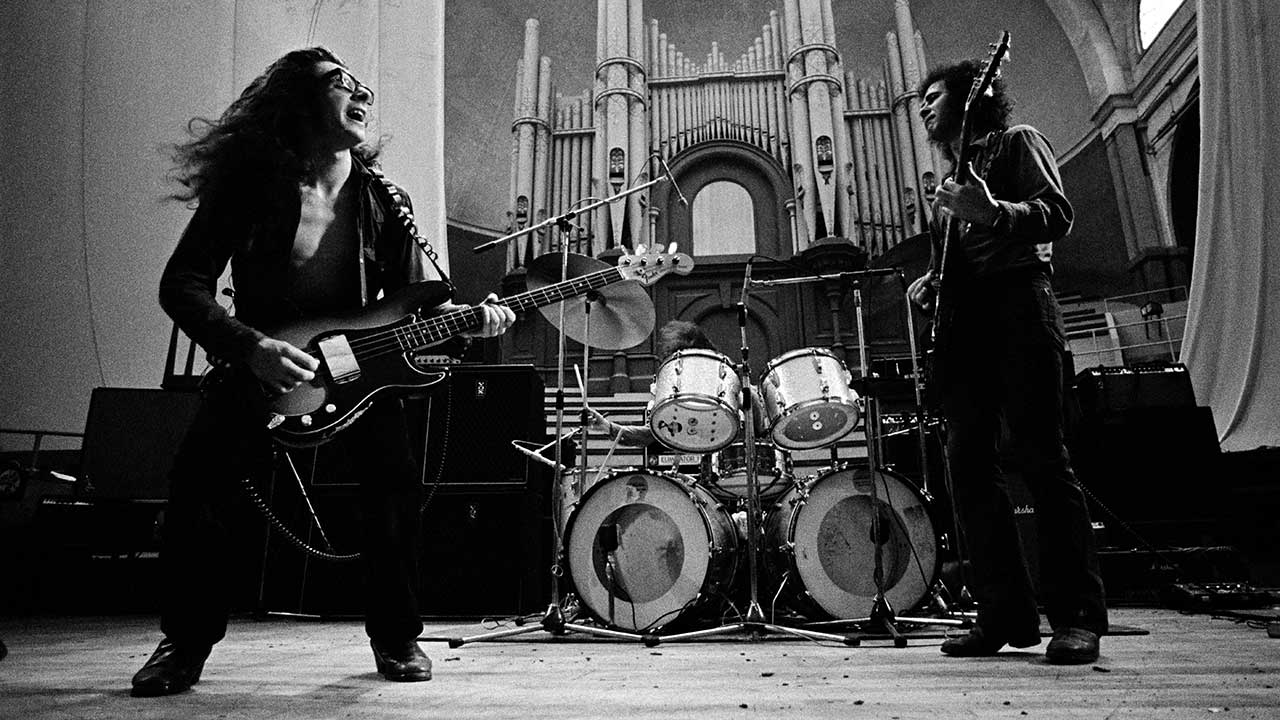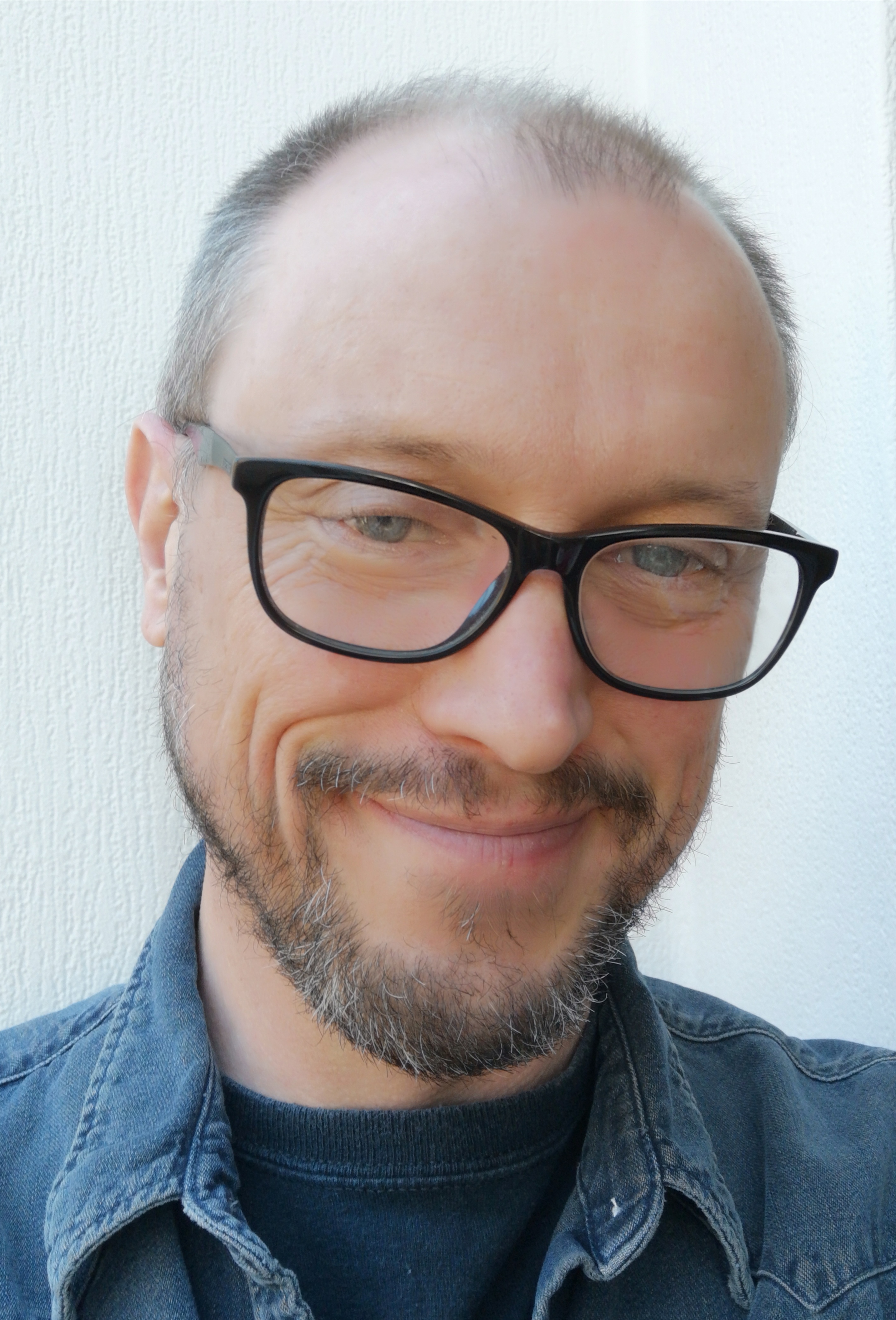Rising young Welsh rockers Florence Black close their shows with a sledgehammer version of Budgie’s best-known tune.
“Budgie were awesome,” says the trio’s singer, Tristan Thomas. “They were one of the first heavy metal bands back in the day, they helped start the whole thing. We play Breadfan at the end of our set and kids still go crazy for it. It’s so powerful and unique, it still really sticks in your head.”
Over the years some huge bands – Van Halen, Soundgarden, Metallica, Iron Maiden – have also covered Budgie songs. True, Budgie never quite reached the major heights of contemporaries like Black Sabbath, but their influence stretches far.
Breadfan is their Paranoid, the song their fans would holler for at shows, the one known by casual listeners who couldn’t name a single other song from their catalogue.
“It is our anthem,” concedes Budgie’s vocalist/bassist Burke Shelley. “And it is Breadfan – not ‘Bread Van’ like a lot of people once thought! Lyric-wise it’s just about someone who likes money. I came up with the word – back then money was commonly called ‘bread’. Generally I grew up with very little money. We weren’t a rich family. I was aware it’s good to have it, but you do see people – around bands especially – being greedy.”
In the very early 70s, Budgie’s classic original line-up – Shelley, guitarist Tony Bourge and drummer Ray Phillips – would head to a hut in a remote field on the outskirts of Cardiff. There they’d crank up the amps to their legendary ear-splitting levels and practise and thrash out new tunes.
“We’d go, make a load of tea, and jam around the ideas,” says Shelley. “Tony or I would start playing something and we’d all join in. It was a long time ago, but I’d guess Tony came up with Breadfan’s main riff. Then I’d say let’s change this bit, let’s go down there, add an accent here. I was always arranging.”
“That’s how we’d write all our songs,” recalls Tony Bourge. “We’d plug in, hammer away and blow our brains out until we were ready to settle down. Writing was like a jigsaw puzzle. Burke and I would look at what each of us was playing – ‘Oh, that’s a nice bit, that’s similar to something I’m doing’ – and piece it together. While writing Breadfan, we settled on the beat so Burke could get the timing of the singing right, then he went away with the idea and came back with the title.”
Shelley sings near the top of his glass-shattering range over the main riff which is, still, none-more-proto-metal. Locked to Phillips’s fast groove, the bass and guitar move in unison through a grinding, in-your-face blues motif rooted in the late 60s music of John Mayall, Cream and – the band that had really turned Shelley’s head – Led Zeppelin. But when Budgie jammed the new song again a bit later, Bourge remembers that they felt it needed a lift, another element apart from that riff.
“So we took the tempo right down for the slow middle bit, I played some nice minor chords, we just eased our way through quietly as Burke sang. There are a few Spanish-y chords near the end, and it builds up again and back in. It worked out really well.”
Such quasi-progressive dynamic shifts were a regular feature in Budgie’s repertoire. Live, the band wouldn’t always include the song’s hypnotic soft centre, but when they did it served as a breather for the head-banging fans at the front of the stage, before the rhythm kicked off again for the final straight.
“And they’d always be ready for it,” Bourge says with a smile. “If you can do that with a piece of music, draw people in, that’s good.”
Powerful and (mostly) fast, Breadfan was guaranteed to get the audience churning. It became a mainstay of the set in early shows as Budgie built their core following in clubs across the Welsh valleys and beyond, and it remained their encore right up until 2010, when Shelley finally called time on the band.
The song was laid down for their third album, 1973’s Never Turn Your Back On A Friend, recorded at Rockfield Studios in Monmouth (where producer Rodger Bain had auditioned and discovered both Budgie and Sabbath four years earlier).
“We always recorded live,” says Shelley. “We did the first album in three days, Squawk in a week and Never Turn Your Back On A Friend in about three weeks.”
On now rare early pressings of Never Turn Your Back, Breadfan opens with a short excerpt from Winston Churchill’s ‘Blood, Tears, Toil and Sweat’ speech from 1942. It was subsequently removed due to a copyright claim from the owners of the Churchill recording.
Although the album didn’t trouble the charts, Budgie’s influence spread. In 1988 Metallica took Breadfan to a huge new audience when they recorded it for the B-side of the single Eye Of The Beholder. It was also included on their 1998 hit compilation Garage Inc.
“That’s when I realised the impact it had,” says Shelley. “It always went down well. But then a lot of our tunes did – they’d be shouting out for Breadfan, Napoleon, Parents. I remember being surprised that it was the one everybody knows about. Metallica must have thought it was a decent song. We got a lift from that, some street cred.”
“When you get a band covering you it’s a real pat on the back,” says Bourge. “It makes you feel like you were playing something decent.”
It’s beyond ‘decent’. Breadfan continues to be an evergreen stem in Budgie’s legacy. In 1990, Japan’s cult metallers Ningen Isu recorded Hari No Yama, their pummelling, Japanese-language adaptation of the track. And like some of Metallica’s audience assuming the song was written by James Hetfield and co, so Florence Black often find themselves letting their fans in on the song’s rich history.
“A few fans have thought Breadfan was one of ours,” says Tristan Thomas. “But we’re always happy to tell them: ‘Nah, it’s a cover. It’s Budgie!”

